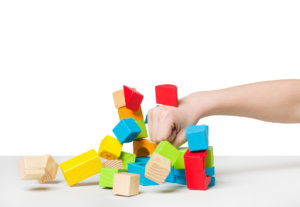When Kids Lose Control or Destroy Property

Sometimes our kids get so triggered that they lose control, like hitting and screaming or even destroying property. It’s scary when that happens – for them and for us. And it’s terribly frustrating because it can leave us feeling helpless, powerless, and clueless about how to handle it.
One parent in our Sanity School® program asked us how to handle it when their son lost control and destroyed property in his own room by throwing and breaking things. She asked, “How should I handle the aftermath of a destructive episode? Does he need a consequence? Does he need to clean it up?”
Below is my best answer using the coach approach and the Impact Model! Here’s a little sample of how it might support you.
My Response:
I know this must be terribly upsetting – for you and for him! Sometimes our kids get so triggered that they lose control and just need to "blow." I'm not saying that it's okay to destroy property in his room; I do think it helps to understand that he has not yet developed the ability to regulate himself emotionally.
So... now what?
First, do your best to stay in a place of connection and compassion. Use the ACE Method:
- Acknowledge that he must have felt completely out of control;
- show Compassion that it must have felt terrible for him!
- And then move into Explore options with him for what needs to happen from here – keeping in mind that this is likely to happen in MULTIPLE mini-conversations, not in one long conversation.
And… then what?
- Offer to help him clean it up (which suggests to him that it's his responsibility and you're on his team to help him).
- Ask him what he thinks might be a reasonable consequence this time (though if you feel like cleaning it up is an appropriate consequence, that's FINE!).
- Then discuss what you both think should happen in the future.
- First, focus on prevention (help him identify when he's getting triggered so he can use strategies to calm himself down before he gets to that point, and then brainstorm calming strategies).
- Then focus on management (identify and agree on what consequences would be in the future).
Remember, when a child has lost control or is destroying property, you can assume that is not something they want to be doing. So be as patient as you can and allow these conversations to take place over time – so that everyone is able to stay calm!


